Submitted by WA Contents
Eric Castagnotto completes new winery cellar in France
France Architecture News - Dec 02, 2021 - 16:43 6020 views

Architect Eric Castagnotto from the firm Architecte DPLG has completed a new winery cellar in Saint Magne de Castillon, France.
Designed for the client Château Angélus, a historic, family-owned winery specializing in Premier Grand Cru Classé Bordeaux, Château Angélus has acquired a new winery in Libourne, France, finely designed by architect Eric Castagnotto from the firm Architecte DPLG.
The cellar is used for making the second wine produced by Château Angélus, Carillon d'Angélus, as well as the latest arrival: Tempo d'Angélus. This new Château Angélus signature wine will be introduced in Quebec for the first time in November 2021.
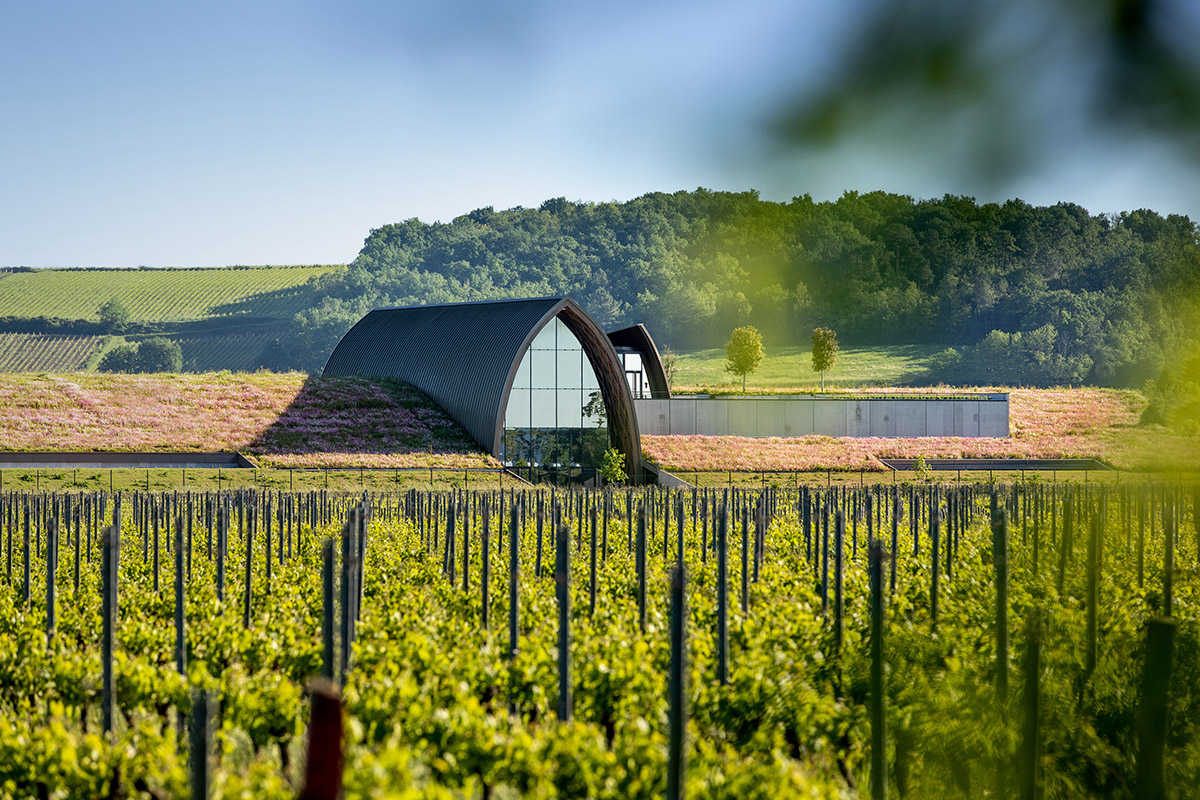
The balance between heritage & innovation
The old winery of Carillon d'Angélus - located on the estate - had become too cramped to accommodate new, more efficient, and more innovative equipment.
Its location in a UNESCO World Heritage Site limited the possibilities of expansion and imposed strong architectural constraints. It was therefore decided to create a new winery from scratch.
A search for space to accommodate this new structure determined that it was not possible to find the necessary surface area for its construction in Saint-Emilion. The spectrum was thus widened to neighbouring communes, and that search led to selected grounds in Saint-Magne-de-Castillon.
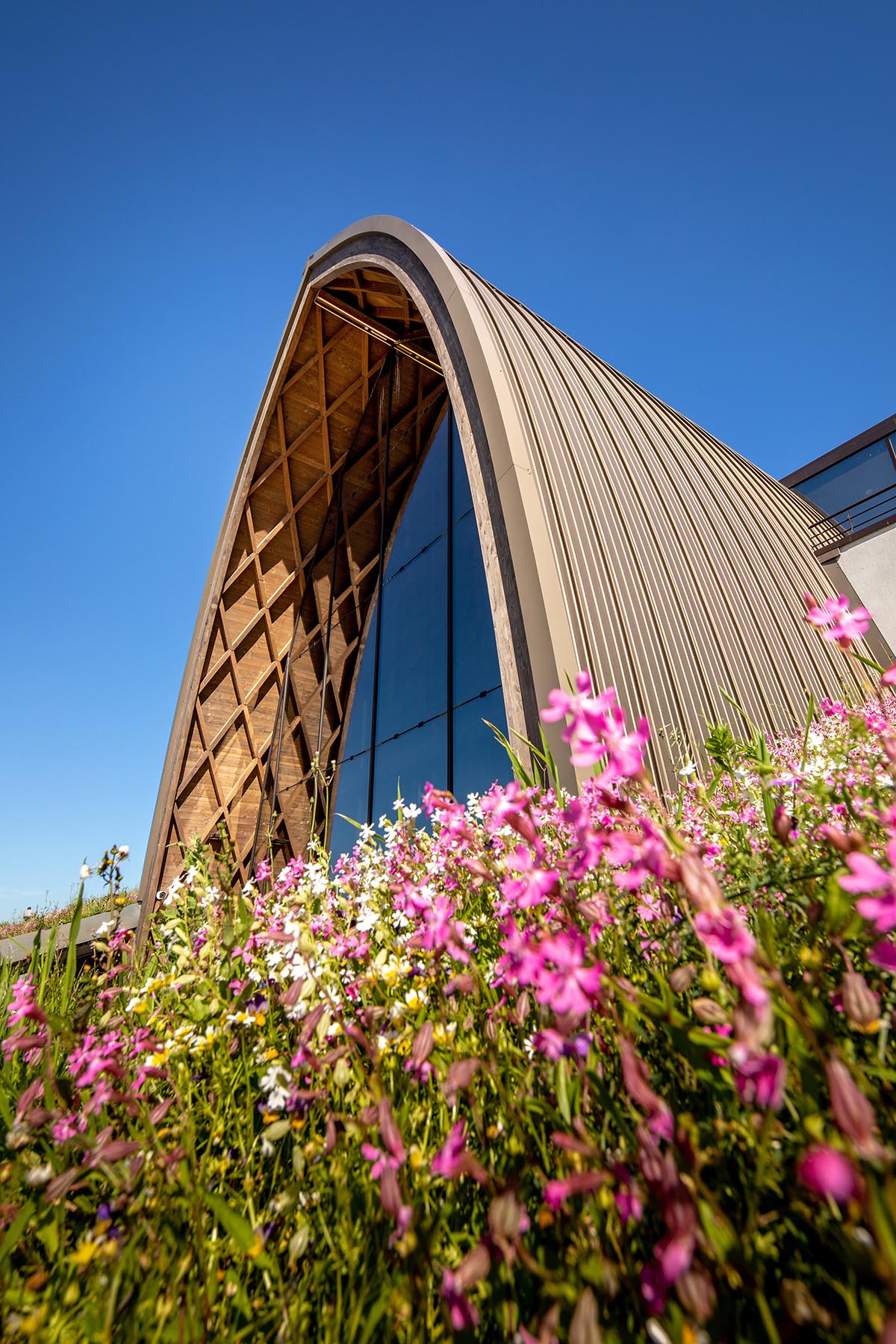
As a result of technical, environmental and aesthetic considerations, this new winery is resolutely modern, deriving benefits from state-of-the-art equipment.
The 4,400-square-metre building, located on a 3.30 hectare plot, is semi-submerged with a green roof. It contains a reception area for grapes, with optical sorting, a vat room for vinification, a cellar dedicated to malolactic fermentation, and a cellar for maturation. Eventually, bottling and labelling equipment will be added to the line.
Inspired by Fleur de Boüard in Lalande de Pomerol, the wine-making cellar, with its 18 inverted truncated cone-shaped vats, hoist system, and vat lift, is 100% gravity fed. A nitrogen production plant enables permanent protection of the wines, as well as oxygen control during vinification and ageing. Photovoltaic panels allow for self-production of part of the electricity required for the new structure's operations.
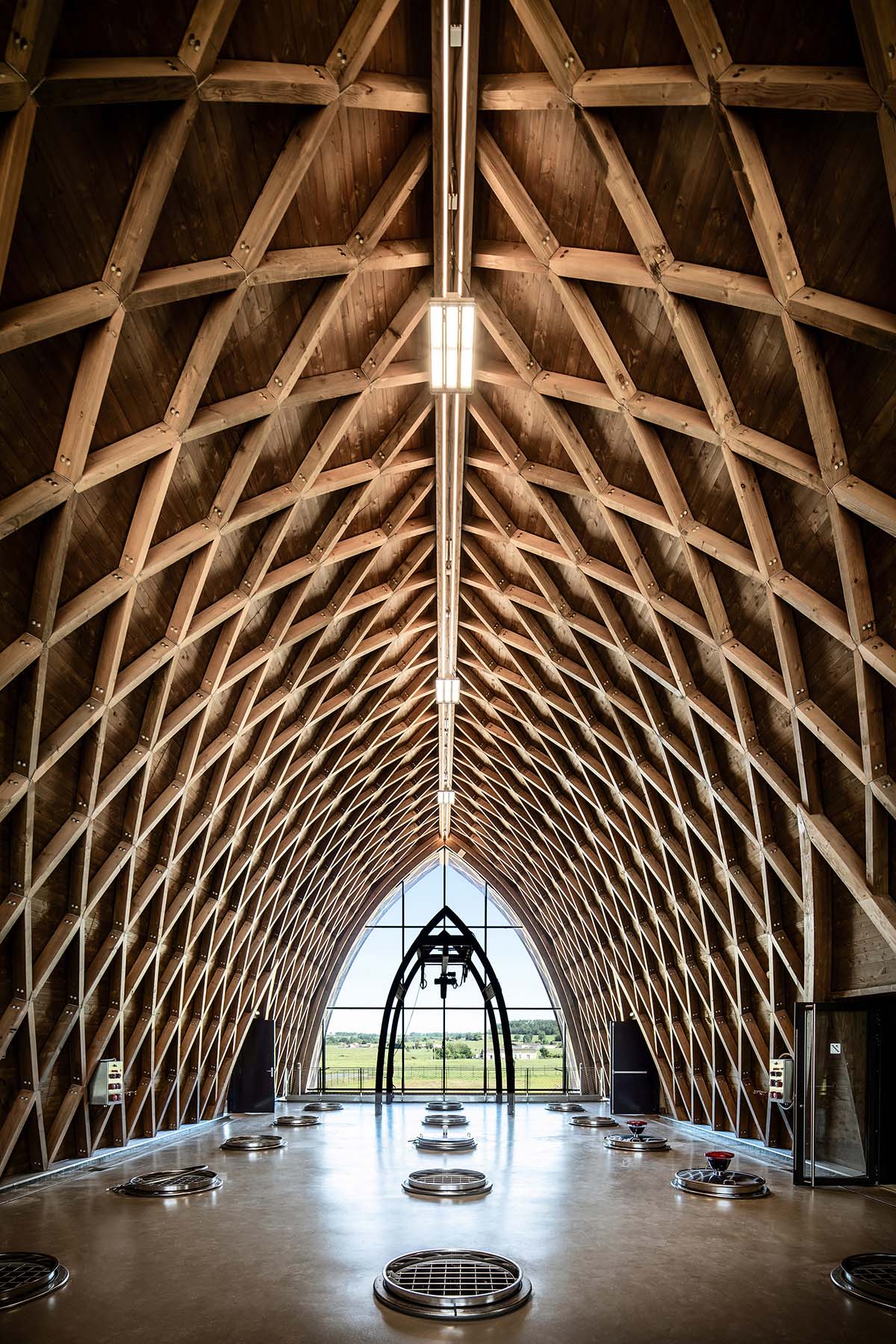
Carillon d'Angélus, like the entire estate, is HVE3 certified. This highest level of "High Environmental Value" certification attests to the best practices of Angélus in terms of biodiversity, phytosanitary strategy, and fertilization management.
The building is BREEAM (Building Research Establishment Environmental Assessment Method) certified, which is the British equivalent of France's HQE (Haute Qualité Environnementale). The winery was delivered during the 2019 harvest.
Building Research Establishment Environmental Assessment Method - or building environmental performance assessment method - is the most widespread building certification standard in the world.
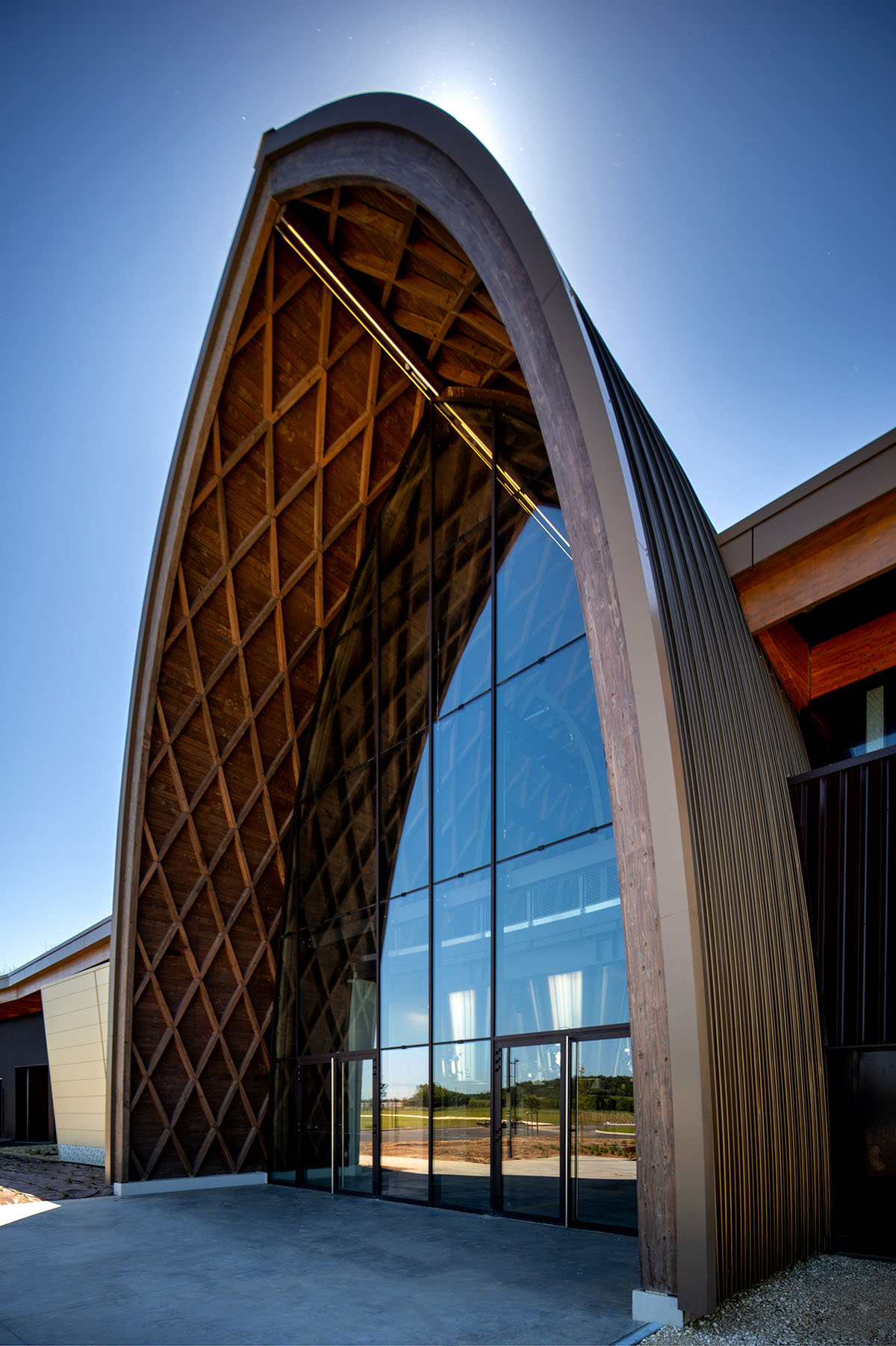
Each type of building has its own assessment standard. The BREEAM assessment, simple and pragmatic, allows for a calculation of the environmental performance of a building and provides applicants with a guarantee to respect the environment from the design stage through the entire lifecycle of the building. Therefore, the certification corresponds to a global environmental approach.
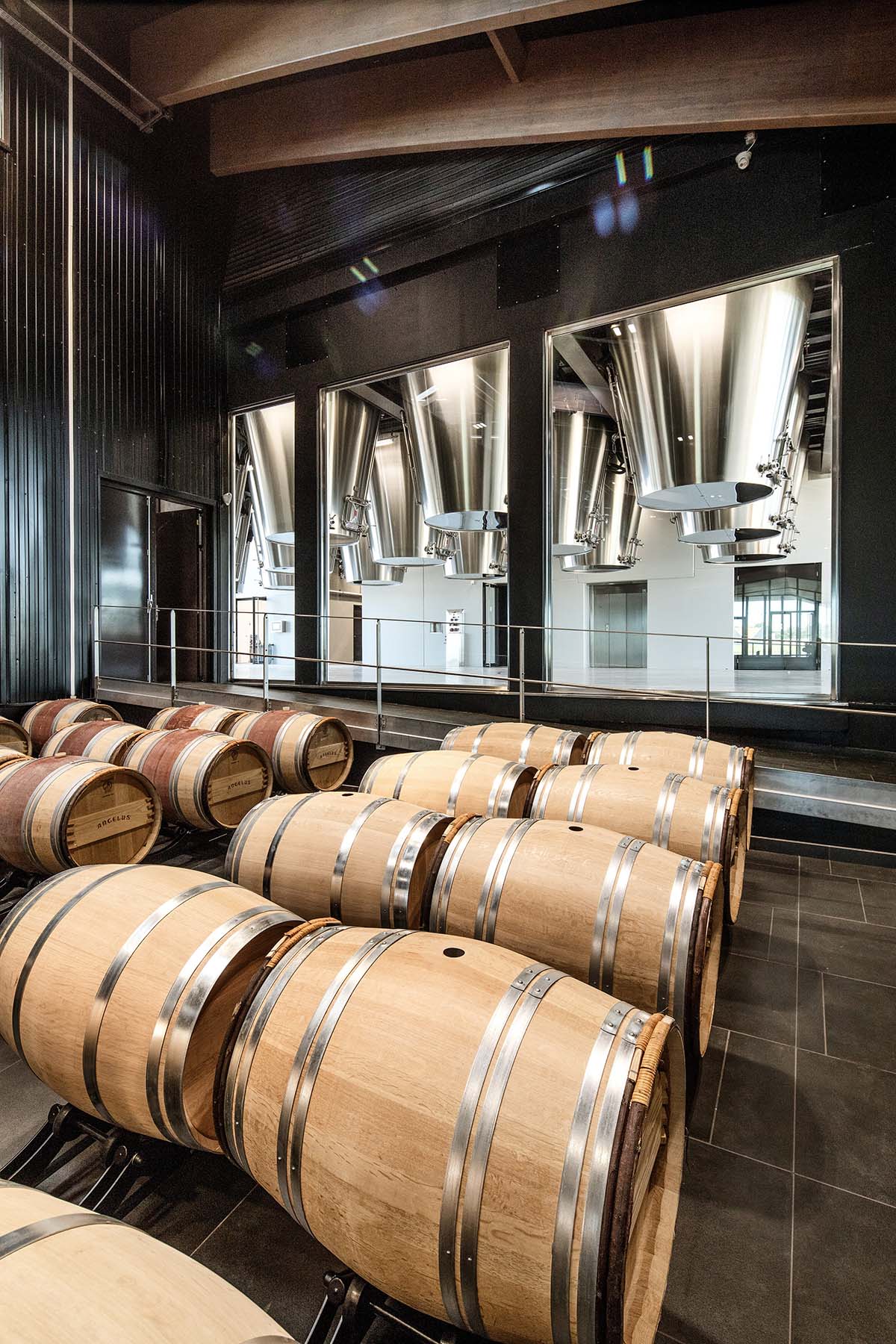
These approaches also help to develop a more creative spirit and positive dynamic that improves team morale through direct impacts on their productivity, health, comfort, and well-being. The environmental aspects rise to the same level as the human aspects.
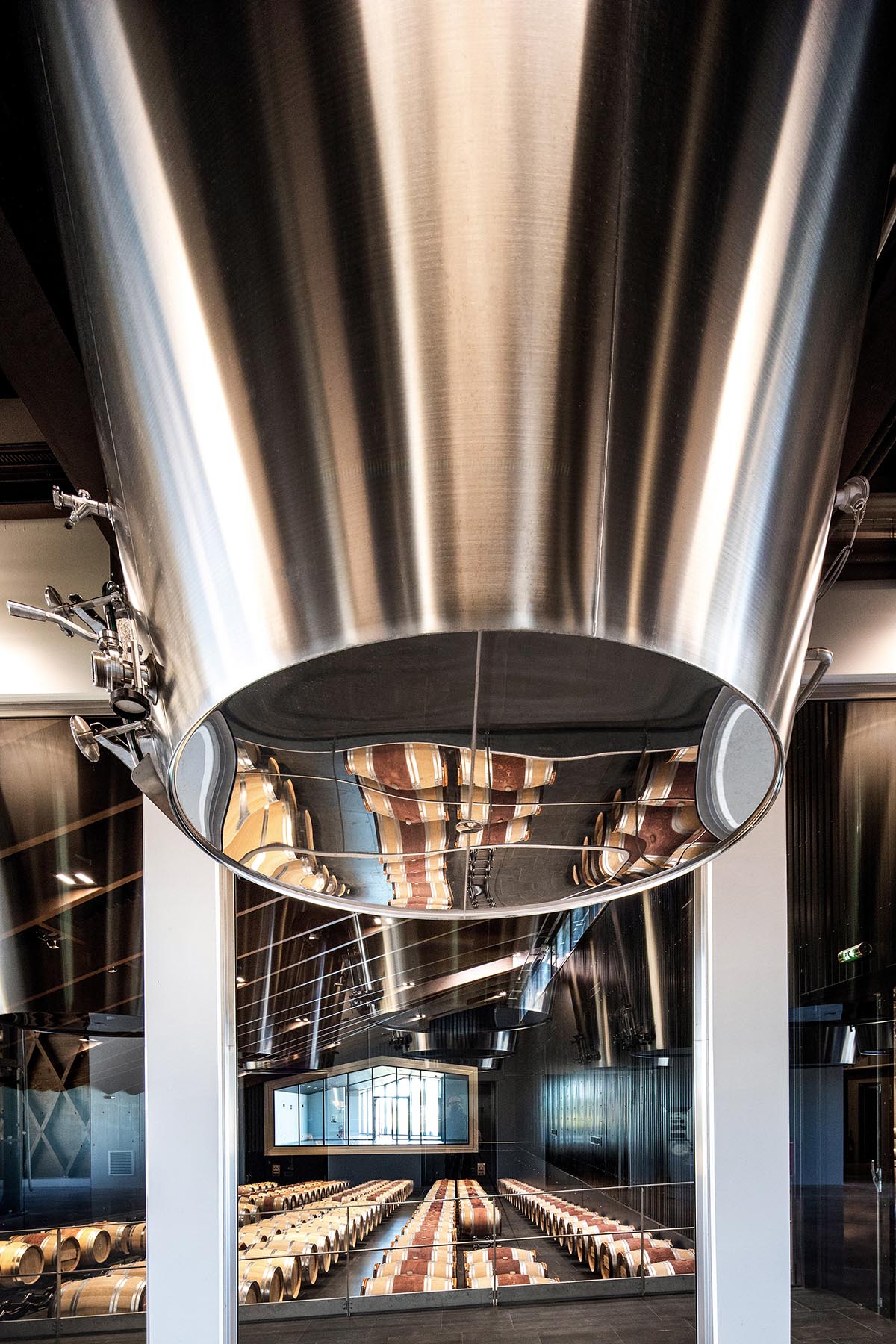
The new winery of Carillon d'Angélus lends itself perfectly to the experimentation of numerous prototypes, from the electronic mustimeter to the grape washer...so many tests which, if successful, will equip all of the wineries in a few years, thus improving the work of the teams, and sublimating the wines produced.
Project facts
Client: Château Angélus
Location: Saint Magne de Castillon, France
Construction completion: November 2019
Area of project: 4400 m2 building, located on a 3.30-hectare plot
Architect: Eric Castagnotto from Architecte DPLG
All images © Deepix
> via Architecte DPLG
